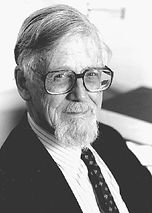Andrew P. Gibson
Ph.D. in Government
Georgetown University
Dissertation

Friedrich Meinecke (1862-1954)
University of Berlin

Felix Gilbert (1905-1991)
Princeton's Institute for Advanced Study

Hans Baron (1900-1988)
Chicago's Newberry Library

J. G. A. Pocock (1924-2023)
Johns Hopkins University
Abstract
In the twentieth century, the political legacy of Niccolò Machiavelli (1469-1527) was the subject of fierce debate among historians of political thought. This dissertation traces the place of Machiavelli and “Machiavellianism” in the twentieth century Atlantic world, focusing on the works of Friedrich Meinecke (1862-1954), Hans Baron (1900-1988), Felix Gilbert (1905-1991), and J. G. A. Pocock (1924-2023). It examines how these scholars engaged with the themes of republican self-government, political realism, Renaissance historiography, and international relations––exploring how their studies on the former Florentine secretary became the prism through which they debated questions of Machiavelli’s intellectual development as well as the geopolitics of their age. The first chapter examines Meinecke’s return to Machiavelli during the First World War to “understand the changes in the nature and spirit of power politics since the Renaissance,” eventually resulting in The Idea of the Reason of State in Modern History (1924). As a “republican by reason,” Meinecke used Machiavelli as a counterexample to his political evolution and charted how the idea of the “reason of state” was a “bridge” between Ethos (ethics) and Kratos (power). The second and third chapters follow the lives and careers of Baron and Gilbert, two German-Jewish historians who studied under Meinecke at the University of Berlin. Both chapters trace the early careers of these scholars in Germany through their emigration to the United States in the 1930s, where they offered “civic humanist,” “republican,” and “realist” readings of Machiavelli that made significant contributions to the fields of Renaissance Studies and International Relations. The fourth chapter analyzes Pocock’s politics of language and his account of the “Atlantic republican tradition” in The Machiavellian Moment (1975), surveying the New Zealand historian’s efforts to reconstruct the discourse of early modern republicanism that he believed still shaped American political thinking into the twenty-first century. By uncovering the intellectual and political origins of these engagements with Machiavelli, this dissertation shows how layers of thinking on republican “crisis” formed American conceptions of state power, civic virtue, and interstate relations in the twentieth century. The conclusion speculates on the implications of these readings with the contemporary “return of great power rivalry.”




Article-Length Projects
American Grand Strategy and the Dilemmas of Spatial Expansion: Republican Geopolitics, Political Redemption, and the Unending Quest for Virtuous Security
Research project with Prof. Charles A. Kupchan, supported by funding from Georgetown University's Department of Government.